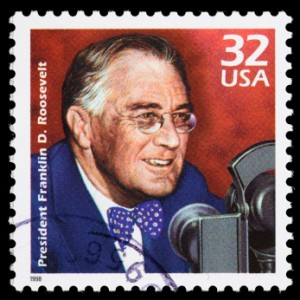 A few years ago I attended a great two-week course at Harvard called “The Art and Practice of Leadership Development”. One of the sessions I remember best was given by a woman called Nancy Houfek, who, amongst other activities, had spent various years working in the theatre. Her session was on story telling, and as long as I live, I will never forget it.
A few years ago I attended a great two-week course at Harvard called “The Art and Practice of Leadership Development”. One of the sessions I remember best was given by a woman called Nancy Houfek, who, amongst other activities, had spent various years working in the theatre. Her session was on story telling, and as long as I live, I will never forget it.
What Nancy did was to take a volunteer from among our group who had a story to tell. It was just a normal story about how he had escaped from the course one night to return home to see his sister who lived in England and had come home to visit her brother. The participant lived with his wife and two small children who were understandably missing the daddy. The story consisted of the children’s reaction with the surprise visit, bath time and the conversation between them and their father.
What Nancy did was to get the participant to re-work the story, over and over again, each time adding new elements, sounds, colours, textures, an imitation of his children’s voices, the exact language that they used, and above all, the emotions felt by the participant.
We must have heard the same story some 12 times but we were never bored as each telling revealed more secrets, touched us on more levels and I can tell you, when he finally told the last version of his story, there wasn’t a dry eye in the house.
I have sometimes related this experience to various people who have had the rather predictable and impoverished reaction of, “typical American corn” and yet in that group of about a hundred people there was something like thirty different nationalities and I can tell you that the last telling of our colleague’s story brought tears to everyone’s eyes. And so, there is something more powerful at play hear, more universal.
People have been telling stories since mankind sat around the campfire, and yet we have somehow lost the art of telling them well. But, when someone does tell a story well, it connects with our most inner being and is, therefore a powerful tool for getting messages across.
Elements that give life to a story
Today, more than ever, we need to be inspired, we need to be moved and we need to find values that we can share with other people with whom we are trying to carry out a project. Converting your daily experiences like an artisan into images that when people close their eyes can see, that make them feel is the best way to give meaning to people’s work and transmit values that give a team a purpose and gives the team an identity. To do that you need to do the following:
- Know what the key message is that you want to get across.
- Leave all other information that doesn’t have anything to do with your message.
- Talk about the sounds, even imitating them.
- Describe the textures.
- Describe the colours.
- Talk about what you felt, wether it was fear, anxiety, joy or happiness. Feelings are what connect people to people.
- Use the exact same language that the people in your story used.
- Use pauses.
- Speak slowly.
- Use a variety of tones and pitch.
- Look at the people in the eyes.
Doing these things will bring your story to life and give it power. Doing these things you will connect with people on an emotional level, and this is the only way to truly mobilise them.
The most important thing about telling stories
But the most important thing is not all of the above, but rather your how you observe and reflect on your own experiences. For example, in the future I would like to write my second book and thought about how what being a father has taught me about leadership. But, in order to tell that story I am going to need to observe very well, to take a lot of photos and videos, to write down how different experiences made me feel and above all what I learnt from them. I am going to need to be really present during my experiences with my children so that I can tell a story that later has meaning and usefulness for others.
It is a lot of work, but it’s worth the effort.
So many lost opportunities
So many managers who lead people have the opportunity to perfect the art of storytelling and transmit values in a way that their people can relate to them, to get their messages across with so much more force. So many managers miss that opportunity.
How could you use your life experiences to craft stories that get your people moving?














